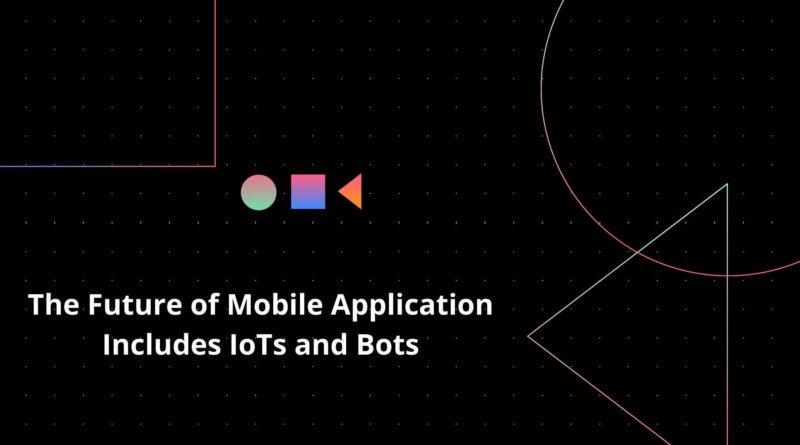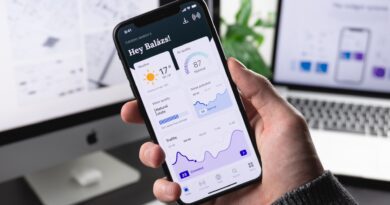The Future of Mobile Application Includes IoTs and Bots
Today, technology has altered how humans interact with machines, how machines interact with other machines in a dramatic fashion. Following the shift from desktop websites to mobile applications, mobile apps now are experiencing transformation. The paradigm shift is brought about by IoT and Bots.
Table of Contents
Mobile apps are Integrated with IoT
IoT or the Internet of Things are connected devices, a network of devices that are internet-enabled, all with an IP address and communicates with one another via a mobile application on the interface of a smartphone. The best mobile apps integrate with the Internet of Things example is in ‘smart homes’ or home automation systems. All major house systems, including heating, security, air conditioning, lighting, and even cooking devices are smart, which means they are programmed to get instructions from home users and accordingly perform.
The worldwide smart home market continues to grow, and thus mobile app development nowadays is into integrating apps with the IoT for smart home devices. All the appliances and devices involved in the systems are interconnected via the cloud into the main hub, which is controlled via an app on smartphones, wearable devices like smartwatches, and tablets.
The mobile connectivity and built-in sensors in devices reinforce the ecosystem of the Internet of Things, creating new opportunities. An environment that’s IoT-enabled, devices act as the main interface via which people are able to interact with devices and appliances that are IoT-enabled. The Internet of Things is rapidly becoming a mainstream technology because mobile devices are packed with features, such as tech that’s geo-location based and several connectivity choices, including Bluetooth, NFC, and Wi-Fi.
Internet of Things, the Future of Mobile Apps
1. Control over systems: The IoT, in mobile applications, ensures that organizations could get complete network command. Entrepreneurs could control their systems with smart devices seamlessly.
2. Cloud-based services: Audiences could access the cloud by putting the IoT in a mobile app. With the help of the IoT in mobile apps, it ensures that operations could be done by management everywhere fast.
3. Control over the system even when offline: With IoT technology, controlling all applications is still possible even without an internet connection.
4. Data gathering: In a mobile app, the IoT provides the ability to collect all the data necessary with the use of sensors on their app, which also helps make fast decisions.
Bots, what are they?
Bots are similar to virtual computer assistants. There are bots in Facebook messaging applications or on Skype. They automatically appear and provide a seamless way of booking tickets or ordering lunch. In mobile apps and app development, bots are like virtual assistants, but use text to communicate rather than speech.
Eliza, the first bot was developed in 1996 by Weizenbaum. The modern-day bots today use the same principals as Eliza, and you are able to communicate with them through typing. It seems that the future of mobile apps includes bots since they would take over everything.
Also Read: Top 10 Amazing Face Recognition Apps of 2020 You Should Use
The Future of Mobile Applications—Bots
Experts feel that bots are the future of mobile apps, and could even replace applications. Here are some reasons why:
- Easy to distribute: You can install a bot from messaging applications, and even share a favorite bot from the messaging application itself. Furthermore, bots could be linked to your social media account. A great example is Slack, which when installed by a member of the team, will be added automatically to other members and everyone could use it.
- Seamless installation: Installing a bot simply entails searching for it from within one’s favorite messaging application and clicking on it to begin chatting. No download or installations from a play store required.
- Portability, convenience, and user-friendly: Bots aside from messaging applications could be installed as a personal assistant, such as Siri or Echo, a live chat, and a car audio system. Moreover, it could be installed in email, smartwatches, and push notifications.
- More affordable: Bots, compared to mobile apps are cheaper. Developing, maintaining, and deploying high-quality mobile apps are expensive. Since bots are deployed on a messaging application, you could leverage the fact that the app was developed by someone who shoulders its cost.
- Messaging apps are everywhere: They have penetrated the market at almost all levels. Almost everyone makes use of one or more messaging applications regularly. Because this is the bots’ deployment base, you can be certain that they also would infiltrate the market in the same manner.
The Must-have for Brands Today—Bots
Users of smartphones are not the only target audience that likes bots, so do the marketing departments of business organizations. Customers are there already, thus what business has to do only is to create bots.
Chatbots, for organizations, could mean enhanced customer service, new opportunities for sales, more personalized customer interaction, and access to the youngest target audience.
The businesses that ensure high rates of engagement could considerably boost sales. This is one of the key benefits that social media could bring. Thus, most organizations have it as an essential promotion strategy tool.
Furthermore, AI-powered bots could provide companies with valuable insights into the target audience. Artificial Intelligence could make use of data including user behavior details, along with transactions to shape a 3D view of the typical consumer. This enables organizations to do accurate predictions, as well as offer personalized content for customers.
Via the insights received from chatbot conversations, brands are able to extend customer communication to other channels, including personalized offers, retargeted advertising, and email while customizing content to correspond to customer requirements.
Through collecting valuable bot conversations insights, enterprises could boost their marketing strategy significantly, through ensuring a new content personalization level, which could increase loyalty to a brand.
Conclusion
We can definitely say that the future of mobile apps includes IoT and Bots, with features including data encryption, CMS, and more. Nevertheless, even with its many advantages, just like anything else they have their downsides as well, such as data security concerns, and so on. Nevertheless, some useful features and tricks could fix it.
The future of mobile apps is indeed all about Bots and IoT. There is enough evidence and more evidence in the future of the convenience and ease of these technologies.
Writer note:
J Baretto is an analyst in a Mobile app development company Tatvasoft. She is working alongside the development and sales team for project development. She is a risk-taker and loves to explore more opportunities while working.




